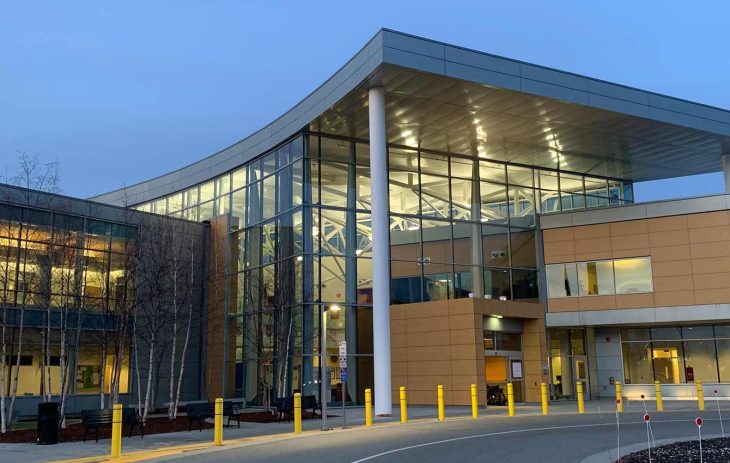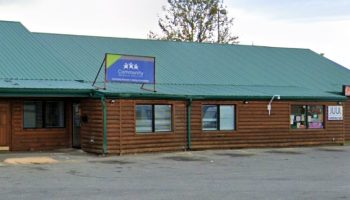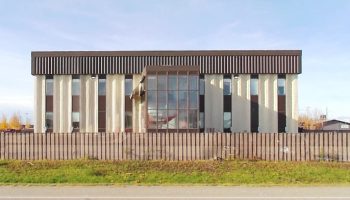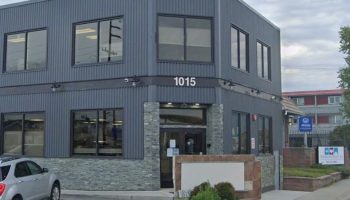About Colonel Mary Louise Rasmuson Campus of the Alaska VA Healthcare System
Previously known as Anchorage VA Medical Center, the newly named Colonel Mary Louise Rasmuson Campus of the Alaska VA Healthcare System is a hospital and primary care facility that also provides mental health and substance abuse treatment. Support is available to adult veterans aged 18 and older and their families, including homeless individuals, regardless of their backgrounds.
Medicare, Medicaid, TRICARE, and other private insurance plans are accepted here.
This center provides medically managed detox services to help clients begin their recovery journey safely, and as comfortably as possible. Individuals are carefully weaned off of addictive substances, and offered FDA-approved medicines such as methadone and buprenorphine to help them stabilize. These wonderful meds also do wonders in helping individuals manage their uncomfortable withdrawal symptoms, as well as helping lessen any cravings. Other drug substitution therapies are also available here, for example, Nicotine replacement, and more.
Various programs and services are then available to clients once detox is completed. Individuals can choose between residential or intensive outpatient care depending on the severity of their addiction, and the level of support and structure they may need. Intensive outpatient treatment is extremely flexible, and ideal as a follow-up for those who complete inpatient, or would simply prefer a program that allows them to work or study as they get better.
Both programs involve counseling and therapy, for example, short-term counseling, or more targeted marriage and family counseling. Self-help groups are also included, as well as more specialized groups to cater to specific veteran populations, like women’s only groups, homeless veterans, and returning combat veterans. Clients can also benefit from ongoing access to relapse prevention and continuing care services to support them as they transition back to independent living. This way, should any setbacks happen along the way, they know they can reach out and access a base of support to get them back on track.
Levels of Care
-
Inpatient
Inpatient and residential programs provide round-the-clock medical and emotional support as you live at the treatment facility. This level of care may be recommended if you have severe addictions or mental health conditions since it removes outside distractions and allows you to focus solely on therapy.
-
Outpatient
In outpatient therapy, you’ll attend therapy sessions several times each week while living at home. This is ideal if you have a strong support system and a lower risk of relapse. Outpatient treatment offers flexibility to maintain work, school or family obligations.
-
Aftercare
Aftercare programs provide ongoing support after you complete a rehab program. They may include several components to help you maintain sobriety including therapy, community support groups and relapse prevention strategies. This gives you a network of resources as you reintegrate into your daily life.
-
Dual Diagnosis
Dual diagnosis programs address substance use disorders and co-occurring mental health conditions simultaneously. This integrated approach to care improves the likelihood of long term recovery and stability by addressing the root causes of addiction.
-
Sober Living
Sober living homes provide a supportive and substance free environment for you to live in as you overcome your addiction. Residents must follow house rules and support each other's recovery journeys. Sober living fosters accountability and stability during this critical phase of recovery.
Detox Service Setting
-
Inpatient Detox
Inpatient detox occurs in a dedicated treatment facility. You’ll live there around the clock and receive intensive medical support and supervision to help manage your withdrawal symptoms. It is suitable for individuals with moderate to severe addictions as it ensures a stable detox environment.
-
Outpatient Detox
Outpatient detox gives you access to medically supervised withdrawal services while still allowing you to live at home. You’ll attend a clinic for treatment and monitoring. This flexible option is suitable for those with mild to moderate withdrawal symptoms who have strong support systems.
Programs
-
Adult (18+)
Adult programs address the substance use and life challenges specific to adults. Therapists can deliver sessions in individual, group and family settings. Services often include job support and life skills training in a structured environment.
-
Alcohol Detox
Alcohol detox programs offer medical support to help individuals withdraw safely from alcohol. Your care team may use medications to ease your symptoms and provide medical monitoring to address complications.
-
Cognitive Behavioral Therapy
Cognitive behavioral therapy focuses on changing harmful thought patterns and behaviors associated with addiction. You’ll learn healthier coping mechanisms by identifying and replacing negative thoughts. This improves your emotional resilience and decreases your relapse potential.
-
LGBTQ Friendly
LGBTQ friendly programs create an inclusive and affirming space for recovery. Treatment is sensitive to issues like discrimination and stigma. You’ll receive support and therapy that respects and acknowledges your unique experiences.
-
Men
Men's programs address substance use while also considering the social pressures, family roles and mental health concerns that are specific to men. You’ll learn healthy coping mechanisms as you build emotional resilience and develop communication skills.
-
Military / Veterans
Military and veteran programs offer specialized support for clients who served in the armed services. Programs focus on reintegration and healing within a structured and supportive environment that acknowledges the unique struggles of military life.
-
Opioid Detox
Opioid detox uses medications to ease severe withdrawal symptoms. It also includes medical supervision to help you manage potential complications. These services allow you to stabilize and begin a recovery plan.
-
Seniors (65+)
Senior programs address the unique needs of older adults like chronic pain, grief and isolation. Programs include peer support and medical oversight for age related health concerns. The goal is to improve quality of life and promote sober aging.
-
Women
Women's programs offer a safe and supportive space to focus on gender specific issues such as trauma, family roles and mental health conditions. Therapists tailor the sessions to address women's needs and foster empowerment in a healing and nurturing environment.
-
Young Adult (18 - 25)
Young adult programs are designed for individuals who are transitioning into adulthood. Topics of discussion typically include identity, independence and peer relationships. Providers may also offer life skills training and career support.
Payment Options
- Payment Assistance
- Medicare
- Military Insurance
- Self Pay
Accreditations
-
 Joint Commission
Joint Commission
-
 CARF
CARF
Contact
1201 North Muldoon Road
Anchorage, AK 99504





